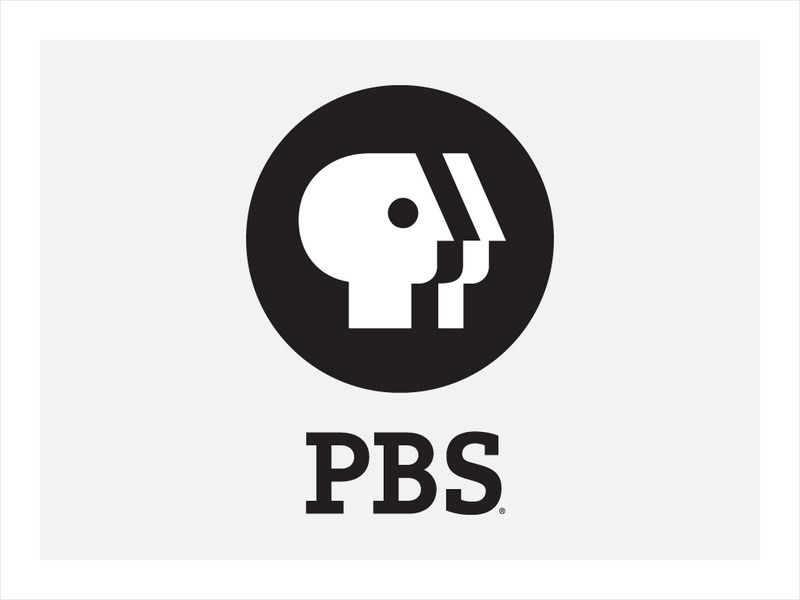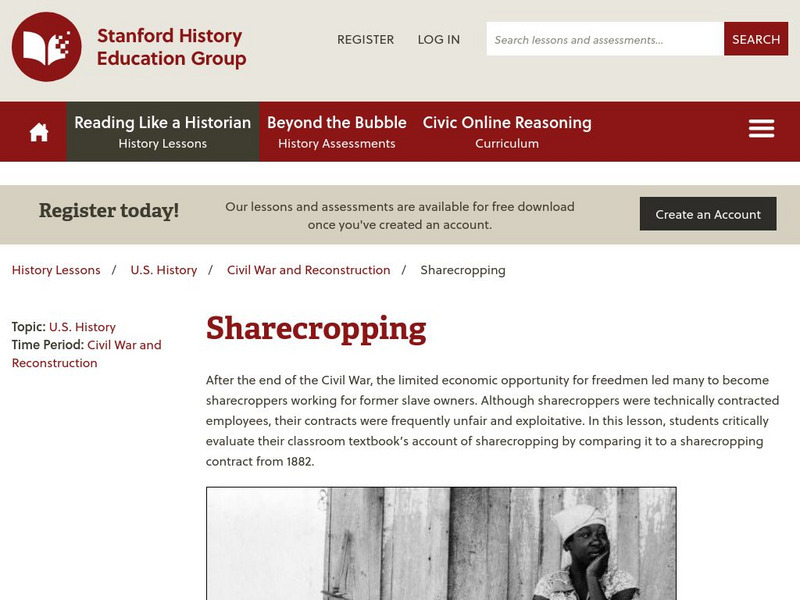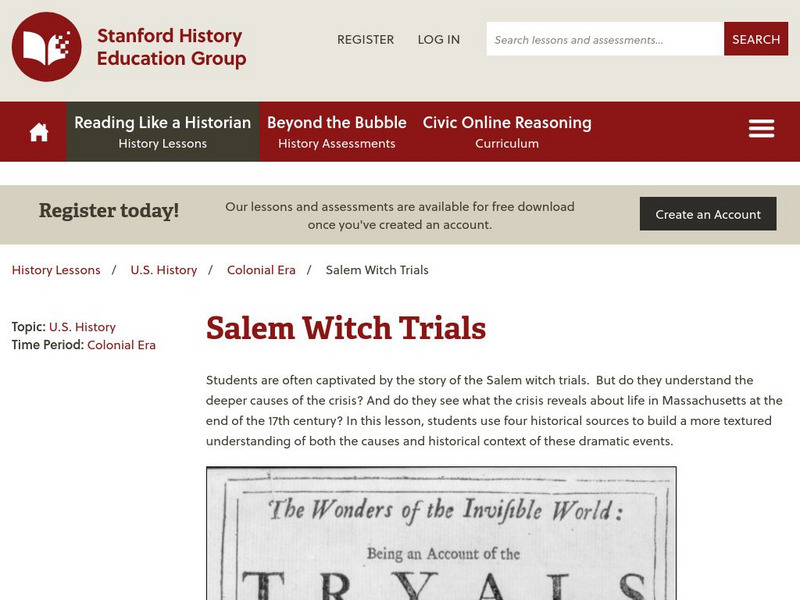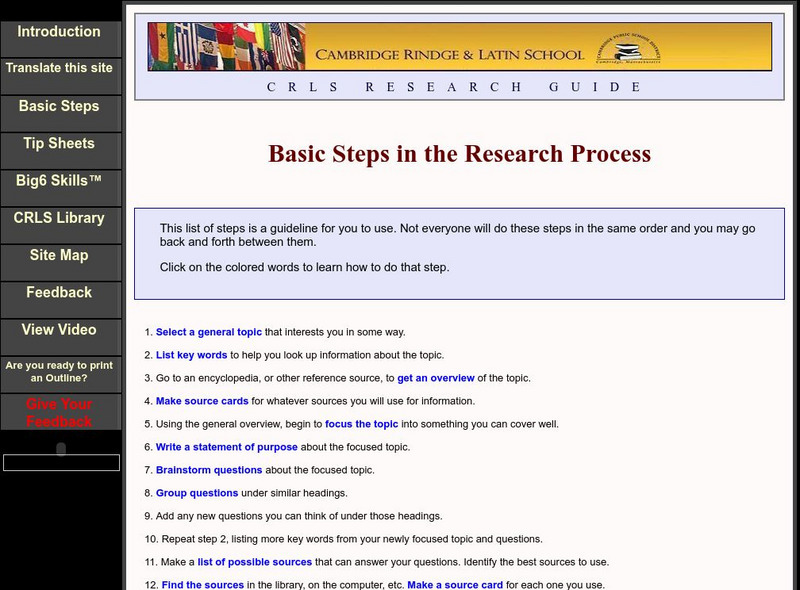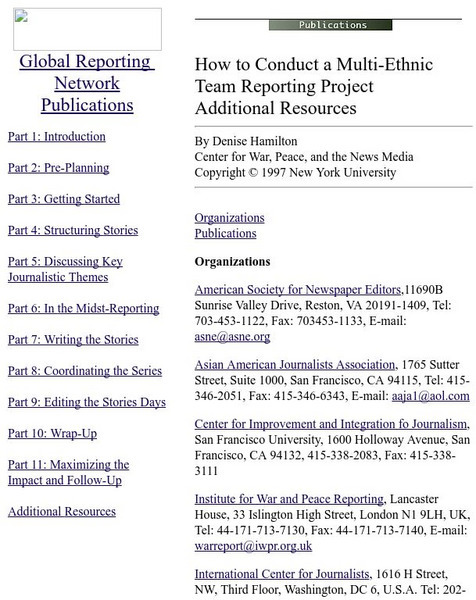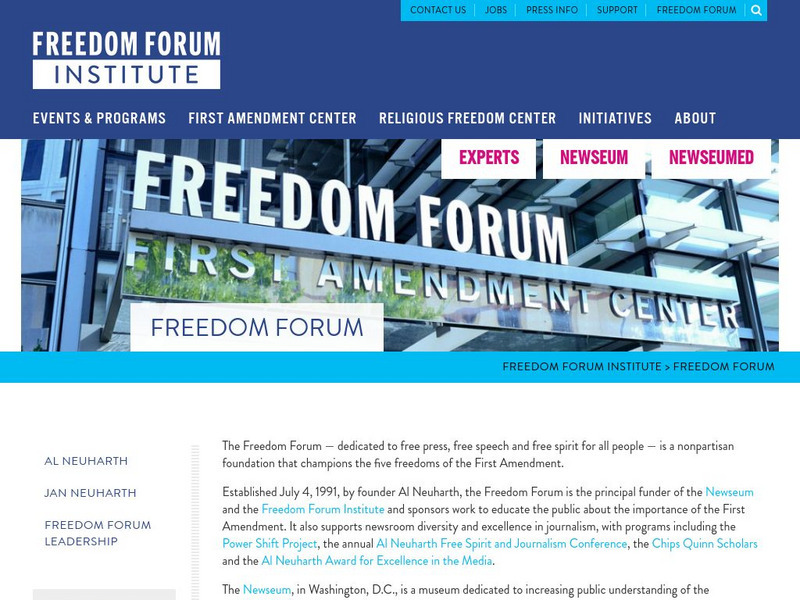PBS
Pbs: Ken Burns America
Find assets by location and call up specific item information including films, connected themes and related classroom resources. A wealth of primary source images from events in American history.
Stanford University
Beyond the Bubble: History Assessments
[Free Registration/Login Required] A collection of innovative assessments, interactive rubrics, and annotated samples of student work with an emphasis on primary source documents for the use in a wide range of history concepts.
Stanford University
Sheg: Document Based History: Reading Like a Historian: Evaluating Sources
[Free Registration/Login Required] Are all historical sources equally trustworthy? How might the reliability of a historical document be affected by the circumstances under which it was created? For this activity, students sharpen their...
Stanford University
Sheg: Document Based History: Reading Like a Historian: Historical Thinking
[Free Registration/Login Required] This chart elaborates on the historical reading skills of sourcing, corroboration, contextualization, and close reading. In addition to questions that relate to each skill, the chart includes...
Stanford University
Sheg: Reading Like a Historian: Intro to Historical Thinking: Lunchroom Fight
[Free Registration/Login Required] A fight breaks out in the lunchroom and the principal needs to figure out who started it. But when she asks witnesses what they saw, she hears conflicting accounts. Why might these accounts differ? As...
Stanford University
Sheg: Document Based History: Reading Like a Historian: Sharecropping
[Free Registration/Login Required] Learners solve a problem surrounding a historical question by reading primary source documents. This historical inquiry instructional activity allows students to critically evaluate their classroom...
Stanford University
Sheg: Document Based History: Reading Like a Historian: Snapshot Autobiography
[Free Registration/Login Required] What is history? And why do historical accounts differ? In this lesson, students create brief autobiographies and then reflect on the process to better understand how history is written. Exploring these...
Stanford University
Sheg: Document Based History: Reading Like a Historian: Stamp Act
[Free Registration/Login Required] Students solve a problem surrounding a historical question by reading primary source documents. This historical inquiry lesson allows students to engage in key aspects of historical thinking as they...
Stanford University
Sheg: Document Based History: Reading Like a Historian:sourcing Classroom Poster
[Free Registration/Login Required] Sourcing asks students to consider who wrote a document as well as the circumstances of its creation. Who authored a given document? When? For what purpose? This poster reminds students before reading a...
Stanford University
Sheg: Document Based History: Reading Like a Historian: Salem Witch Trials
[Free Registration/Login Required] Students read primary source documents to solve a problem surrounding a historical question. This document-based inquiry instructional activity allows students to use four historical sources to build a...
Stanford University
Sheg: Document Based History: Reading Like a Historian: Homestead Strike
[Free Registration/Login Required] Students solve a problem surrounding a historical question by reading primary source documents. This historical inquiry lesson allows students to use the historical thinking skills of corroboration,...
Stanford University
Sheg: Document Based History: Reading Like a Historian: Maine Explosion
[Free Registration/Login Required] Learners solve a problem surrounding a historical question by reading primary source documents. When the USS Maine exploded in Havana Harbor, triggering the Spanish-American War, the New York Times and...
Stanford University
Sheg: Document Based History: Reading Like a Historian: Political Bosses
[Free Registration/Login Required] Young scholars use primary source documents to investigate central historical questions. For this investigation, students examine a political cartoon, a muckraker text, and the defense of a political...
Library of Congress
Loc: 100 Years Ago Today
Search America's historic newspaper pages from 1836-1922 or use the U.S. Newspaper Directory to find information about American newspapers published between 1690-present. Chronicling America is sponsored jointly by the National Endowment...
Annenberg Foundation
Annenberg Learner: America's History in the Making: Historical Thinking Interactives
Six interactive activities are presented that walk students through how to use their critical thinking skills in the analysis of historical artifacts and documents. The sixth one explains how to balance the various perspectives that...
Cambridge Rindge & Latin School
Cambridge Rindge & Latin School: Basic Steps in the Research Process
A comprehensive list of the important steps in researching and writing a report or project. Includes links to tip sheets for each step.
University of California
Uc Irvine: Distinguishing Between Primary & Secondary Sources
This site has an online quiz to test your knowledge of primary and secondary sources.
Boston University
How to Conduct a Multi Ethnic Team Reporting Project
This site offers a phenomenal plan for assembling a culturally diverse journalism team to work on a story (or series of stories) of social significance. This extensive guideline provides step by step instructions. (Note: some links may...
Georgia Department of Education
Ga Virtual Learning: Nonfiction and Reseach: "Choosing Nonfiction Sources" [Pdf]
This is the 20-page PDF "Choosing Nonfiction Sources." It provides informatation about various types of nonfiction: primary and secondary sources, reference works, databases, newspapers and periodicals, and nonfiction books; it also...
University of North Carolina
University of North Carolina: Writing Center: Handouts: Evidence
What kinds of evidence best support the points you make in a paper? Where can you find the evidence you need? This handout answers all these questions and more, including the difference between primary and secondary sources. You'll also...
University of California
Uc Berkeley Library: Critical Evaluation of Resources
Questions to ask yourself when determining if a source is reliable. Discusses difference between primary and secondary source. List of reference sources and links to other sites that teach you how to evaluate sources....
Duke University
Duke University Libraries: Finding Primary Sources
Finding primary sources can be difficult and confusing at times. This site provides a list of history databases, rare books and manuscripts, and research guides for those looking for primary resources such as diaries, letters,...
Other
The Freedom Forum Online
This Freedom Forum site is dedicated to promoting a free press. Journalism education and "improving understanding between the media and the public" are a major focus. Budding journalists will enjoy this site. Includes links to news...
Virginia Tech
Digital History Reader: Introduction
An online learning module for the U.S. and European history. Presents central questions of key events in history. Students explore data, evaluate conflicting accounts or interpretations, and develop conclusions based on primary evidence....


